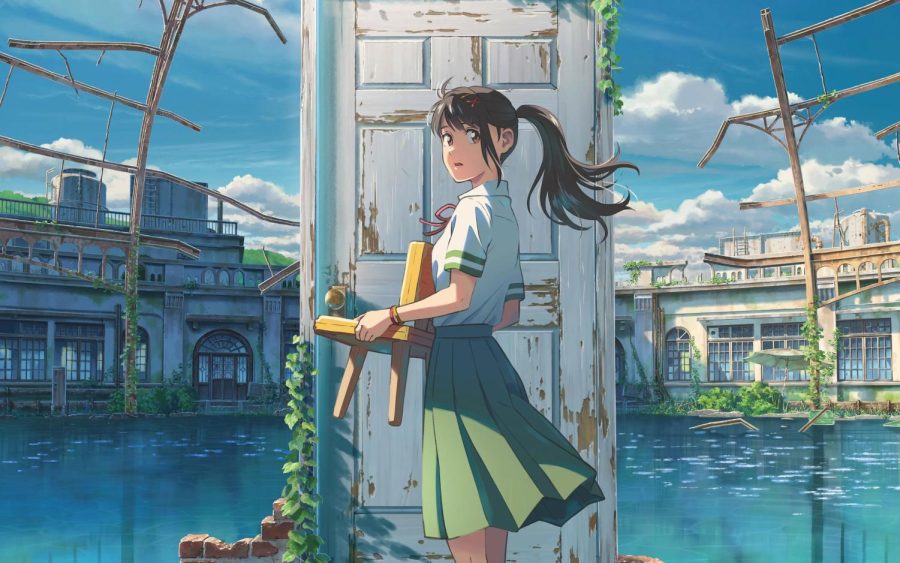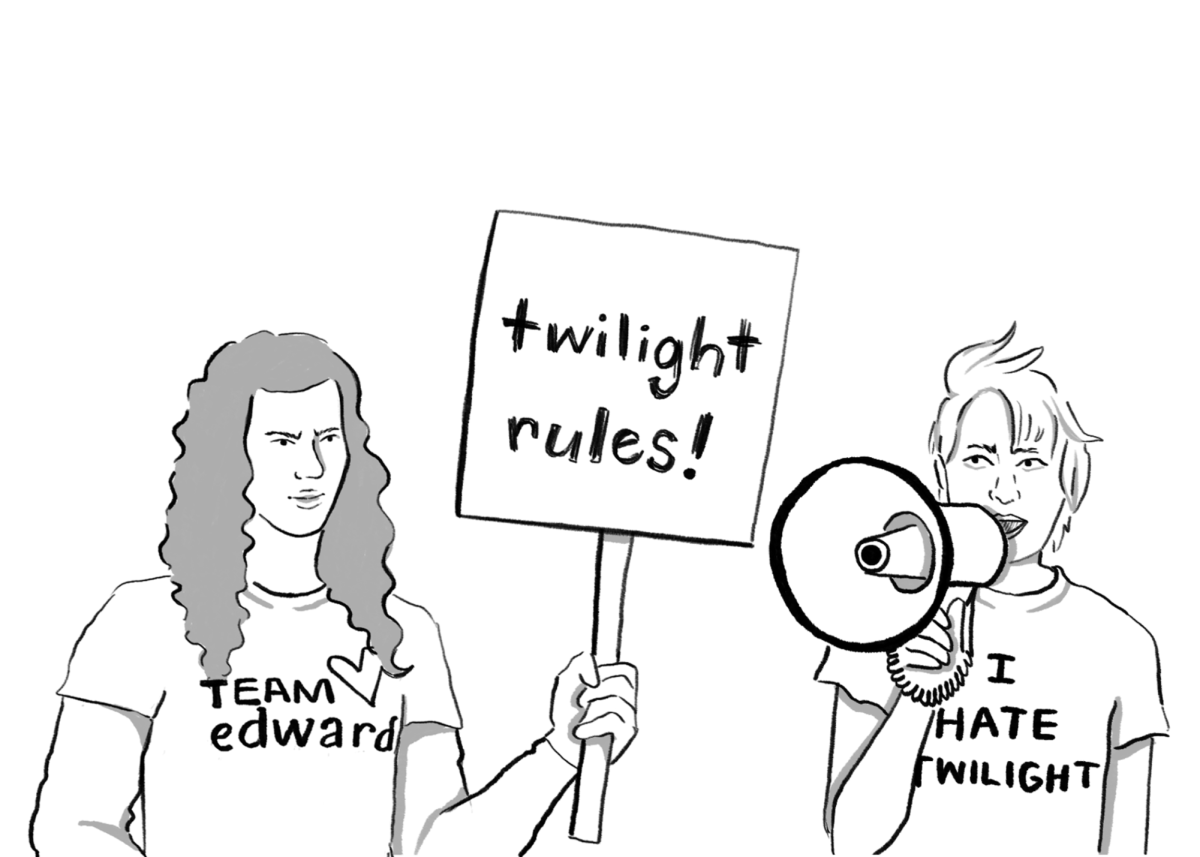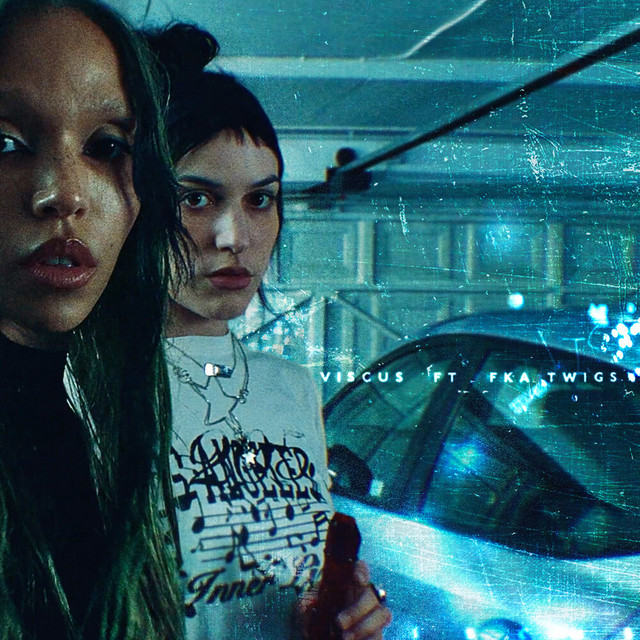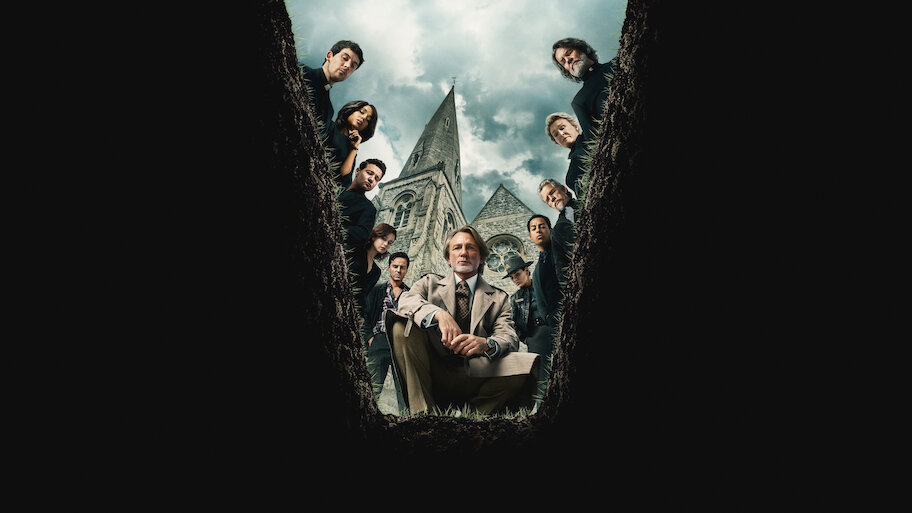Movie Review: “Suzume”
“Suzume,” directed by Makoto Shinkai, delivers a visually stunning film about one girl’s adventure in saving Japan from mysterious supernatural forces.
Apr 23, 2023
Before stepping into the 6:20 p.m. showing of “Suzume,” I was elated. In just a few moments, I was entering not just a simple theater, but the beautiful, fantastical universe of Makoto Shinkai’s masterpieces. The unforgettable moments I had after seeing his previous films, “Your Name” and “Weathering with You,” left me expecting another emotional and thrilling experience.
Needless to say, I was disappointed.
“Suzume” is a fantasy-romance anime movie that takes place in modern-day Japan. The main character, Suzume Iwato, develops the power to see supernatural forces that threaten to leave Japan in shambles through powerful earthquakes. To stop this, she joins Souta, known as a “Closer”, who locks the magical doors that keep the supernatural forces at bay. Things get worse when Souta is transformed into a chair, leaving Suzume alone in her quest to save Japan before her home becomes completely demolished.
The first thing I noticed was how much the film was lacking: lacking in character development, lacking in pacing, and lacking in plot. Magnificent scenes of ambient skies and starlit horizons could not hide the fact that “Suzume” did poorly with its story.
Suzume Iwato was a typical character trope I saw coming: an ordinary girl who is content with her life, but has secret trauma that she uncovers during the movie. When Suzume meets a beautiful but mysterious man while on her way to school, I was surprised as to why she was so intrigued by him. I’m sure no 17-year-old girl would have the guts to follow a random stranger, let alone to an abandoned site. Seeing how insistent she was in finding out who Souta was made me wonder whether Suzume was going on this particular mission to pursue this unrequited interest she had for Souta or her own self-discovery. While both paths can be interpreted throughout the story, I found myself perceiving that Suzume made this decision for love. Ultimately, her choices throughout the film to try to save Japan from the disasters were also tied to saving Souta from staying a chair forever. From abandoning her home to accidentally cutting off contact with her aunt, Suzume goes to great extents for Souta that touch on being slightly unrealistic and questionable. Knowing Japan’s past with natural disasters, such as the 2011 earthquake and tsunami, the audience can infer that a part of Suzume’s desperation for saving Japan stems from this history. What I thought could be done better was to make this clearer in Suzume’s dialogue, which I found centered on how much she wanted to save Souta rather than her home country.
I also wished the story hadn’t felt all over the place with its pacing. The film’s run time was about two hours, yet the film felt way longer. After an hour had passed, I assumed the ending was already approaching — until the movie kept going. After a sudden twist with Souta’s fate, leading to a different quest for Suzume to fulfill, I assumed the film would end there. Instead, the story continued into what felt like the beginning of a sequel. I feel “Suzume” would have performed better if it were separated into a two-part movie series. This disappointed me the most; how unfortunate it was for the ending to feel so rushed and crammed when there was so much potential to orchestrate the beauty of the story in slower, smoother pacing.
Still, despite the flaws, I appreciated this movie’s wonderfully crafted animation and depiction of love between Suzume and Souta. There is something unforgettable about the way that Shinkai entrances his audience by capturing details and mesmerizing scenes that bring tears to your eyes. With magical landscapes that matched the adorable moments shared between the two lovers of the story, Shinkai delightfully captures the true meaning of doing everything you can for someone you love.
While “Suzume” does not fulfill the expectations of previous films directed by Shinkai, it remains a stunning visual piece that encapsulates lessons of healing, loving, and moving on from the past. Suzume’s journey not only brings the audience along on a chaotic and intense mission to fight supernatural forces, but also reveals something she may have been searching for all her life: healing her inner child after the loss of her mother. The enchanting displays from this film’s animation will leave you wishing such a beautiful world was real, and hoping to find it again in the future.
Image courtesy of Vulture


















uno online • Jan 26, 2024 at 1:02 am
This movie is truly interesting. I really like Suzume Iwato.
getaway shootout • Aug 9, 2023 at 9:11 pm
Shinkai enchantingly conveys the actual meaning of giving everything you have for someone you love with lovely sceneries that complemented the adorable moments shared between the two lovers of the story.